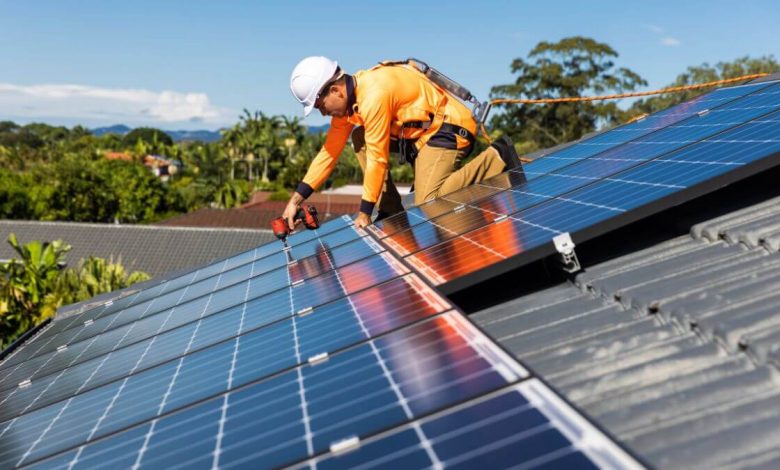R20,000 Rooftop Solar Relief Announced for SA Homeowners

For many South Africans, investing in rooftop solar has become more than a luxury — it’s a lifeline against load shedding and ever-rising electricity costs. But while the savings on power bills are real, the upfront costs and red tape have often discouraged households from making the switch. One of the biggest hurdles has been Eskom’s requirement that solar installations be signed off by a professional engineer — a process that can set you back around R20,000.
Good news: that could soon change. In this article, we’ll break down the updates you need to know, how much you could save, and what steps to take before registering your solar system.
Why Eskom Requires Solar System Registration
Before diving into the changes, it’s important to understand why Eskom insists that all grid-tied solar systems be registered.
- Legal requirement: Under the Electricity Regulation Act, all small-scale embedded generation (SSEG) systems under 100 kVA must be registered.
- Safety concerns: Registration ensures proper installation to prevent dangerous backfeeding into the grid, which can put workers and communities at risk.
- System protection: Incorrect installations can damage Eskom’s infrastructure and lead to costly repairs.
In short, Eskom argues that registration is about more than paperwork — it’s about protecting people and the power grid.
The Current Cost Burden: R20,000 Engineer Sign-Off
Right now, the rules require a professional engineer to sign off on solar installations. For households, this means:
- High upfront cost: Around R20,000 just for engineering approval.
- Delays in going solar: Finding and paying a professional engineer adds another barrier to adoption.
- Unnecessary duplication: Many homeowners already obtain a Certificate of Compliance (CoC) from their electricians, but this has not been enough for Eskom.
This high fee has been described as “irrational” and “anti-poor” by watchdog groups such as the Organisation Undoing Tax Abuse (OUTA).
What’s Changing: Electricians to Take the Lead
The South African Bureau of Standards (SABS) is finalising new low-voltage regulations that could transform the process.
Key updates in the pipeline:
- Electricians allowed to sign off: Instead of engineers, registered electricians will soon be authorised to issue compliance certification.
- Certificate of Compliance (CoC): Homeowners would only need a CoC, which typically costs around R1,500 — a massive saving compared to R20,000.
- Closing the gap: These regulations will ensure that electricians’ CoCs cover the “full solar PV installation,” something that is currently excluded.
This change could make solar far more accessible to households and small businesses across South Africa.
OUTA’s Position: Why You Should Wait Before Registering
While Eskom is moving towards change, OUTA has advised homeowners not to rush into registering their systems just yet.
Why OUTA says wait:
- Unnecessary red tape: OUTA argues that current sign-off rules are excessive and discriminatory.
- Existing laws already cover safety: Solar systems are already regulated by:
- The Occupational Health and Safety Act (OHSA)
- The Electrical Installation Regulations
- The SANS 10142-1 standard
- Questioning Eskom’s authority: OUTA believes Eskom may be overstepping its powers by demanding extra approvals for small, behind-the-meter systems.
What OUTA is doing:
- Engaging Eskom, NERSA, SABS, and the Department of Employment and Labour.
- Pushing for clarity and fairness in the solar registration process.
- Encouraging households to hold off until the new regulations are officially in place.
What This Means for You as a Homeowner
If you’ve already installed solar or are planning to make the switch, here’s what you need to know:
Checklist for Homeowners
- Stay informed: Watch for updates from SABS and Eskom on when the new regulations take effect.
- Don’t rush: Consider waiting before registering until the cheaper CoC option is available.
- Use registered electricians: Always work with accredited contractors who can issue valid CoCs.
- Budget smartly: Plan your solar costs with the expectation that compliance will soon be far cheaper.
Pro Tip
Ask your installer about future-proofing your system so that it aligns with upcoming compliance rules. This way, you won’t need costly rework later.
FAQs
1. Is registration of rooftop solar really compulsory?
Yes. All systems under 100 kVA must be registered under the Electricity Regulation Act.
2. How much can I save with the new rules?
Instead of paying around R20,000 for an engineer sign-off, you could pay about R1,500 for an electrician’s CoC.
3. Should I register my system now?
OUTA advises holding off until the new SABS regulations are finalised, which will make compliance much cheaper and simpler.
4. Who will enforce the new rules?
Compliance will still be regulated by existing laws (OHSA, Electrical Installation Regulations, SANS standards), with electricians playing a bigger role.
Also check: Revolutionary Solar Panel Cleaning Drones for Rooftop and Ground-Mounted PV Systems
For years, the high costs of registering rooftop solar systems have discouraged South African households from taking full advantage of renewable energy. The upcoming changes — allowing electricians to sign off installations with a CoC — represent a potential saving of nearly R20,000 per household.
While Eskom and OUTA continue discussions, the message for homeowners is clear: relief is on the way. If you’re considering solar, stay patient, keep informed, and prepare for a smoother, more affordable registration process soon.



